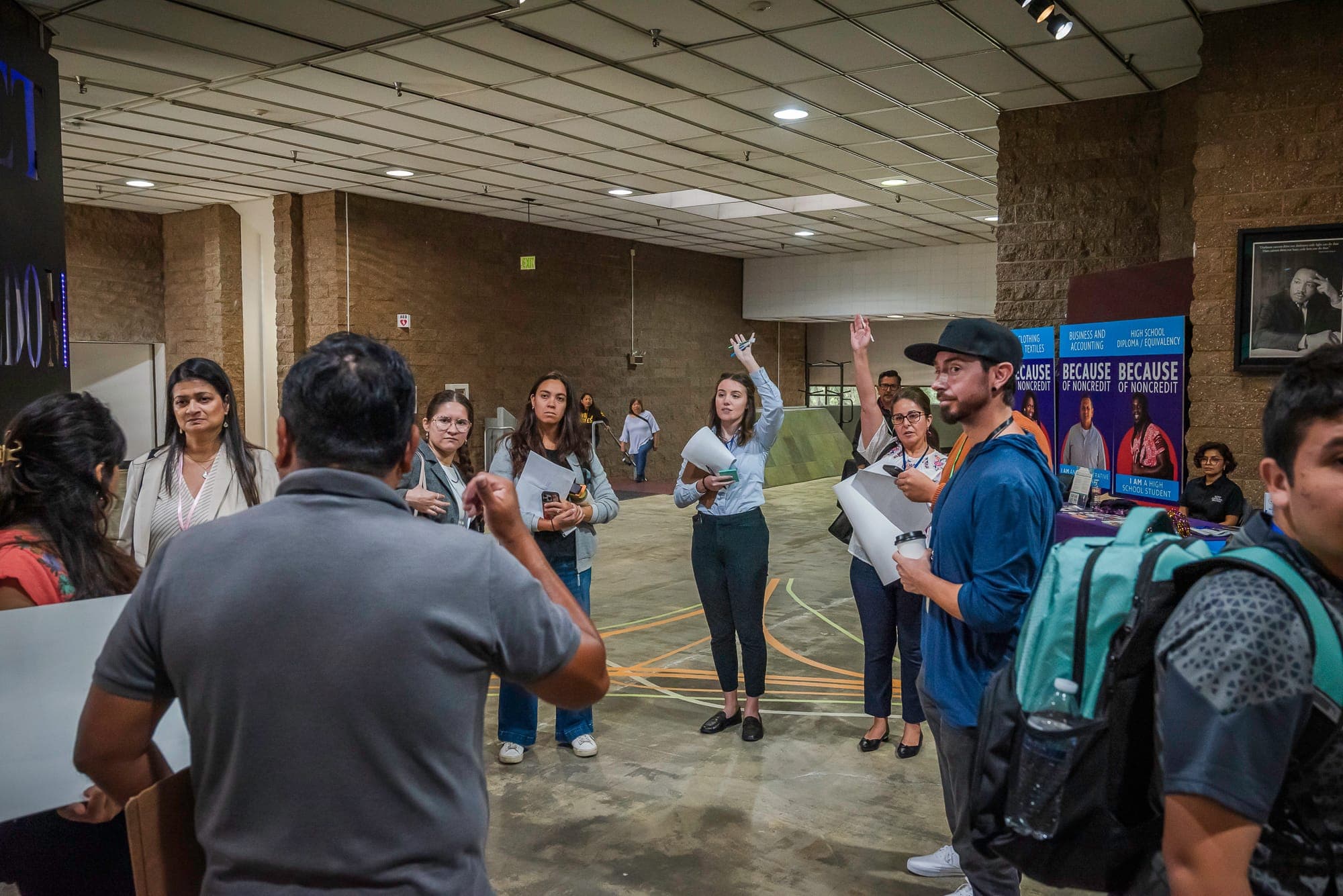
News
By Megan Wright, October 27, 2021

Clockwise from top left: Bobby Boone, Founder and Chief Strategist of &Access; Calvin Gladney, President and CEO of Smart Growth America; Ilana Preuss, Founder and CEO of Recast City; and Tina Leone, CEO of Ballston BID.
On Wednesday, October 20, Smart Growth America and LOCUS: Responsible Real Estate Developers and Investors held the second session of Commonwealth Communities: Smart Growth Strategies for Our Emergent Future– a 5-part virtual series of technical assistance sessions exclusively designed for Massachusetts’ elected officials and municipal staff. From October through December 2021, over a dozen expert speakers from across the country will engage audiences in a variety of discussions around walkability, small businesses, transit and TOD, equity in municipal practice, and zoning and land use regulations.
Commonwealth Communities’ second session, Cultivating a Commonwealth Wide Small Business Ecosystem, featured four expert speakers discussing how to foster and support small businesses throughout Massachusetts.
Bobby Boone, Founder and Chief Strategist of &Access, opened the session with his view of how small businesses impact local communities, noting that small businesses are rooted in community and they are a great way of connecting retail and people. He also acknowledged that small businesses are “the most representative of community identities and that they are the businesses that we see the most.”
Next, Tina Leone, the CEO of Ballston BID gave an overview of what she considers to be small businesses: “storefronts, retail, services, restaurants, co-working spaces; all of which are vital in placemaking and creating a sense of community where people want to live, work, play, and learn.”
Ilana Preuss, founder and CEO of Recast City, provided her definition of a small business, saying that the most important aspect of a small business is not the number of employees, but the way that they fit in with the fabric of the neighborhood. These businesses are “location agnostic” and provide some sort of good for the community.
Finally, Calvin Gladney, President and CEO of Smart Growth America noted that for people just starting out, small businesses development takes a lot. Moreover, “those that are making the decisions and creating the policies that affect small businesses may not have ever owned a small business.” He also stated that small businesses are important to smart growth because they shape what you want to see and feel in a place. They also encourage mixed use, diversity in wealth, and vibrancy and authenticity.
Throughout the session, speakers discussed the economic benefits of small businesses, chief among them that they build wealth in different demographics and attract other investors and business owners. They also discussed how small businesses can promote equity by acting as anti-displacement networks and by increasing liveability and workability for residents.
At the conclusion of the session, speakers agreed that strategies like inclusionary zoning, flexibility in use and space, and COVID countermeasures such as direct investment dollars and marketing and promotion support are vital to ensure the success of small businesses.
We invite you to join our Planning for the future of transit and TOD in Commonwealth Communities on November 3rd at 10am-12pm ET, the third session in Commonwealth Communities’ 5-part series.
Additional information and instructions for how to register can be found here.
Related News

© 2025 Smart Growth America. All rights reserved
Site By3Lane Marketing














